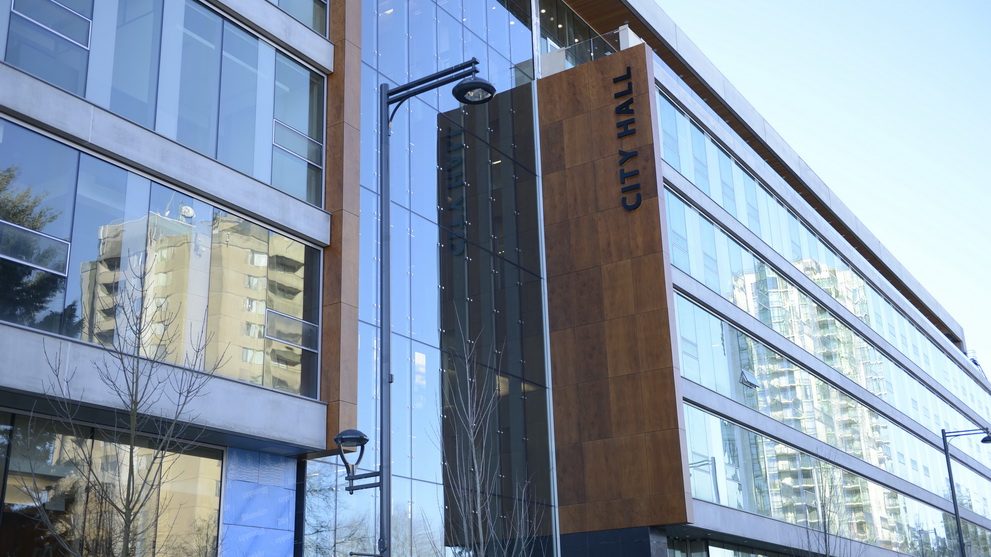Complaints to Surrey’s ethics commissioner may be halted until next mayor, council elected

The ability of Surrey’s ethics commissioner to investigate complaints about the conduct of mayor and council could be put on pause until after the next municipal election. A motion set to come to council Monday proposes that “the Commissioner must suspend the processing of a complaint received regarding a Council Member under this Bylaw, including by suspending any investigations regarding the Council Member, in the period commencing on January 31, 2022 and ending on the day when the newly elected Council is sworn into office.” Complaints that have already been received will, however, be allowed to proceed. The next election is in October, 2022 — nearly 10 months away. If the motion passes, only complaints about those who are re-elected will be allowed to move forward. Coun. Brenda Locke says the motion appears to have been brought by Mayor Doug McCallum, and she says if it passes it will undermine the ability of Surrey residents to hold their elected officials accountable. “I think it’s pretty clear, if you look at it, that the citizens are being denied their ability to complain about the ethical behaviour of Council,” she says. “To deny the residents that that access is just appalling. This is a vital function for democracy in our city.” RELATED: Surrey council votes to hire ethics commissioner The ethics commissioner’s two-year term began in July, 2020. The role of the commissioner is two-fold. First, to investigate violations of the Code of Conduct by mayor and council, and second, to advise mayor and council on their “ethical obligations.” As of Jan, 13 2022 the office had received 48 complaints, with 10 still being processed. The bylaw will allow those to move forward. The results of two investigations have been posted online, both were into complaints against McCallum. In his first annual report, published in August of 2021, Commissioner Reece Harding noted a “significant” number of complaints. Many, he said, did not arrant investigation and were dismissed summarily. He said the “newness” of the office, which is a first-of-its-kind for a B.C., led to a number of complaints submitted that the office does not have any jurisdiction to investigate — including vague allegations of “unethical behaviour” and complaints about city employees and not elected officials. But he also said the high number of complaints likely reflected the polarized state of civic politics in Surrey. “At this time, the City of Surrey and its elected officials are engaged in some truly generational public issues. These issues have sparked significant debate within the community and Council chamber. This is democracy at work and it must be respected.” One of the most polarizing issues for both council and residents has been the replacement of the Surrey RCMP with a municipal police force. It was one of McCallum’s key campaign promises in 2018. The mayor and his slate have a majority on council, and almost always vote as a block. “There has to be an oversight measure somewhere, and the Ethics Commissioner performs that role to some degree,” Locke says. “It is a serious and important role. And the fact that we won’t have that any longer is actually very disrespectful to the public. It’s certainly disrespectful to the commissioner himself, and I think it’s disrespectful of democracy.” Locke says having an ethics commissioner who can probe the conduct of mayor and council is vital precisely because of the conflict over policing and the controversy in which the mayor has been embroiled. “If there was ever a time, and ever city — it’s Surrey and now. We’ve got a mayor who has been charged criminally. We’ve had have a mayor who has kicked people out of council chambers, and then brought them back without even an apology. We’ve had a myriad of complaints, and certainly no consultation with the public.” RELATED: Surrey mayor, supporters bar some residents from council meetings In December, the mayor overturned a ban that prohibited seven members of the campaign to keep the RCMP in Surrey from attending council meetings. it had been in effect since September, after being supported by McCallum and his slate who said it was necessary to “protect council and city staff ” from people who had been “disruptive” and “hostile.” Opposing councillors slammed it as undemocratic, accusing the mayor of abusing his power in order to silence his critics. On Dec.10, McCallum was charged with public mischief after a special prosecutor was appointed to look into an incident from September where the mayor alleged an opponent of replacing the RCMP ran over his foot with their car. The charge prompted opponents on council, and pro-RCMP campaigners to call for McCallum to immediately resign. The mayor made his first appearance earlier this week, but did not enter a plea. A spokesperson has previously confirmed the City of Surrey will be footing McCallum’s legal bills, citing a bylaw that protects municipal officials from legal action. The first officers with the Surrey Police Service were deployed in late November. However, opponents of the transition have continued to be critical, saying the move is opposed by the majority of residents, lacks transparency, and is too expensive. Locke has announced she will run against McCallum for mayor in 2022, halting the police transition is the first plank in her platform.
Read original article here.
Written by: Lisa Steacy

Facebook Comments